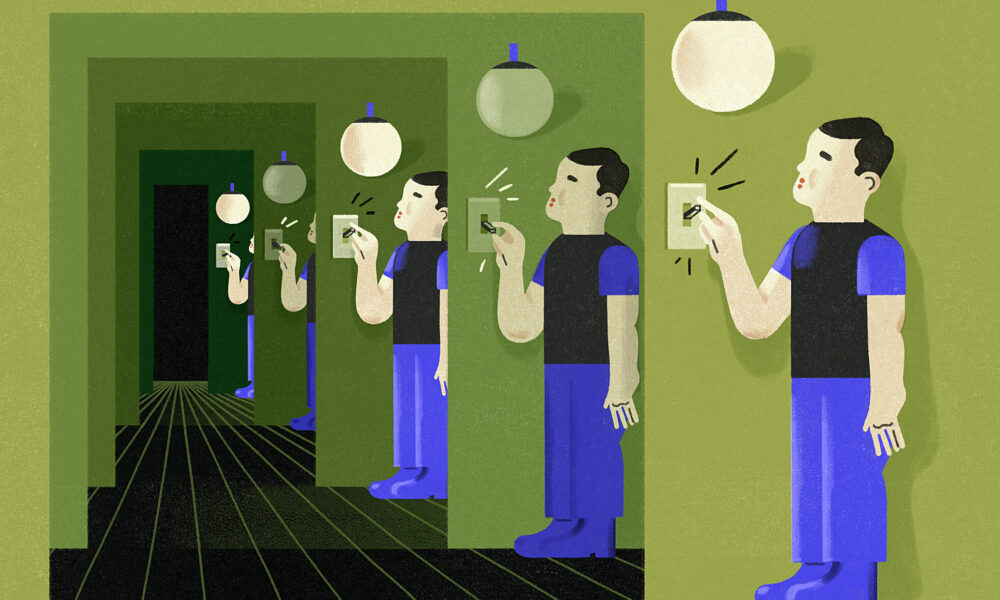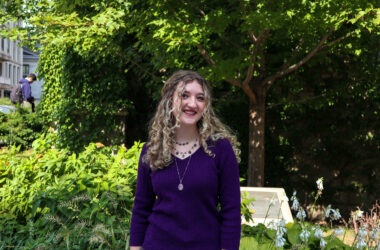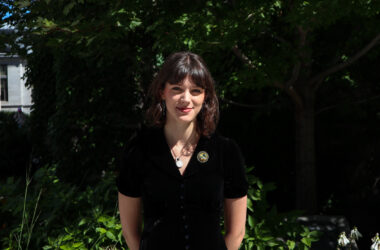Content warning: Mentions of mental illness and descriptions of intrusive thoughts and compulsions
I was 17 when I finally started to seek help for my obsessive-compulsive disorder (OCD). The signs had been there for a long time, but it took me receiving a proper diagnosis to realize the scale at which it was affecting my everyday life. After six months of weekly therapy sessions, coupled with the support of my family and friends, I finally gained enough control to get my life back on track. I learned a lot about myself during those six months, but, most importantly, I learned that having OCD is not to be taken lightly.
OCD is a mental illness that affects roughly 350,000 people in Canada, but that’s only those who have received formal diagnoses.. Its symptoms may vary from person to person but generally involve unwanted or intrusive thoughts, which often provoke anxiety and fear, as well as ritualistic actions to help cope with said thoughts. Intrusive thoughts can manifest themselves in many ways, from fear of contamination to the inability to throw things away. For instance, I would often have anxiety-provoking thoughts about those close to me getting injured, and the only way I could shake them from my head was to perform seemingly arbitrary rituals, such as obsessively checking that the doors were locked or that the oven was turned off. If I didn’t do these rituals, I would have trouble sleeping, with thoughts of intruders or housefires racing through my mind.
I used to be embarrassed by my OCD, partially because I knew that so many people still don’t take it seriously. I have heard that a crooked picture frame is “triggering someone’s OCD” or that people who like to clean their rooms are “OCD about it” too many times. These are sentiments that I have been hearing my whole life, at school, on the internet, everywhere. Every time I hear someone making a joke about OCD, it cuts deep, as people don’t seem to understand how horrible it truly is. I had felt the paralyzing anxiety caused by my OCD for years before I finally received help, and it is something that continues to afflict me to this day.
I would like to think that most people who say such things are not saying them out of malice, but rather out of ignorance. It is very easy to fall back on stereotypes that have been parroted for generations, but it takes effort to learn about what the condition really entails. There have been countless times where I have heard these same annoying jokes being made, and while I desperately wanted to tell people to stop, I didn’t out of embarrassment and anxiety.
Luckily, more initatives have cropped up in recent years to help educate and spread awareness about OCD and its symptoms. International OCD Awareness Week, which takes place every year in early October, helps destigmatize OCD and provide resources for those diagnosed with the condition. The campaign is run by the International OCD Foundation, a non-profit which aims to help those dealing with OCD around the world. They have done a lot of great work educating the public on a condition that is still widely misunderstood.
Unfortunately, there is no “cure” for these obsessive-compulsive thoughts, but there are many great resources and coping mechanisms that I am very grateful for. It is an affliction that I still deal with on a day-to-day basis, but I am in a much better place now than I was before I sought out professional help. Unfortunately, professional help is not always easily accessible and McGill’s resources for mental health support are severely lacking. From difficulties getting appointments, to staffing shortages, it can be incredibly tough for students to receive the help they need. However, there are many free, professional services, such as AMI-Quebec, that offer mental health support and counselling to those in need.
I am now at a point where I am proud to say that I am no longer ashamed or embarrassed by my OCD. It is something that I myself and many others deal with on a daily basis, and it must be taken seriously. Hopefully, with continued efforts and better education, we can finally break away from the misconceptions that continue to stigmatize people to this day.







